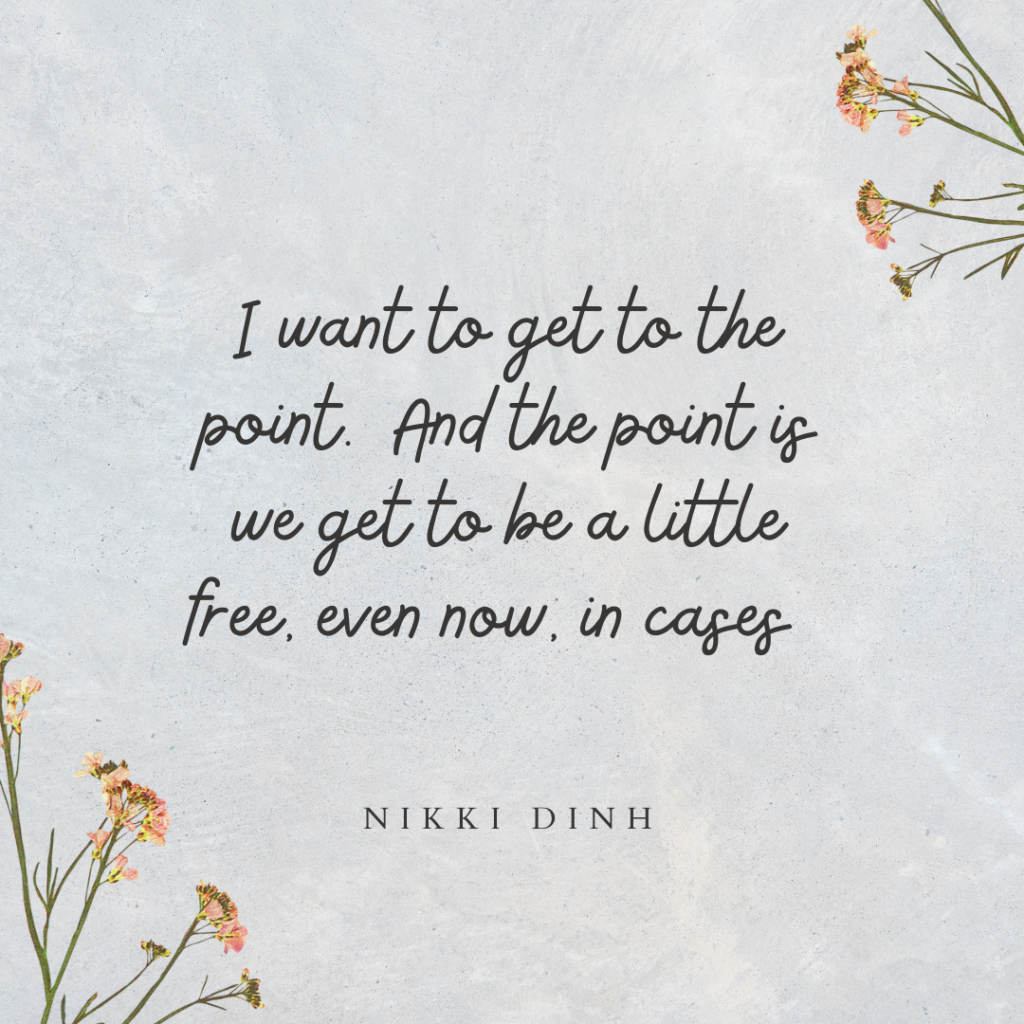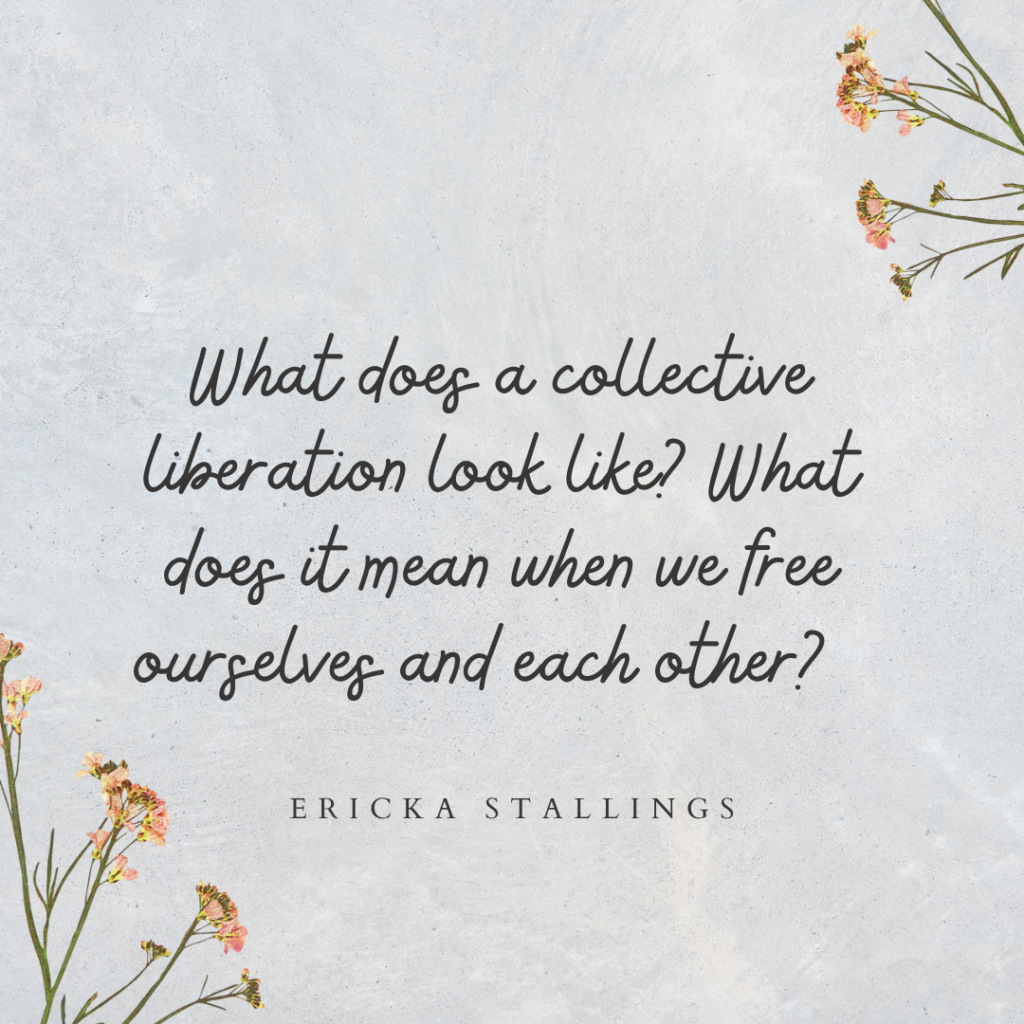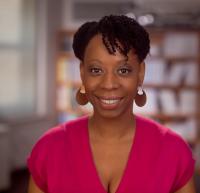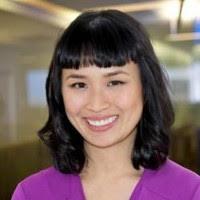I was able to meet with the Co-Executive Directors of the Learning Leadership Community, an organization I’ve long admired for their commitment to a community-focused transformative leadership practice. This past year, LLC was able to return to a co-Executive Director model which has freed up both Nikki Dinh and Ericka Stallings to focus on shifting LLC towards a more liberatory transformative leadership model. Part of this shift involves supporting the ongoing work of Network Weaver as it provides tools and resources to scale up access to weaver spaces and serve as a platform that amplifies the impact of BIPOC weavers and leadership practitioners on their communities. More deep-rooted shifts involve the difficult work of making even more room for thinking about and practicing liberatory frameworks that make equity work within this system sustainable for people who come from othering backgrounds.
“We look at leadership as a tool for transformation. To say that we are “equitable” within this current system, which is in and of itself inequitable is not necessarily our goal. Racial Equity being a path towards liberation, that’s the change that we’re trying to seek.”
– Ericka Stallings
In this interview, we talk a little bit about both Nikki and Ericka’s vision for LLC, liberatory processes, how community is the first network we come into, and why the work LLC is doing matters right now. Nikki and Ericka’s responses have been edited for clarity, but all effort has been made to maintain the integrity and spirit of their words.
* * *
Can you talk to us a bit about liberatory processes?
Nikki: “Liberatory” is a why, but it’s also a how for me, because it’s not a destination. It’s not like race equity, where you can measure your way to a certain point in the data and then it switches over to being more equitable for certain communities. Liberation, collective liberation, co-liberation, however you want to see it, is going to be a forever journey. We’ve seen what it does to our community members when non-profits focus only on getting the data or policy right—there’s a disconnect. And so how we do it really matters to people. Ericka and I always talk about what it takes to make a movement or network whole. How do we get to just work in just ways? It’s not the technical titles like executive director and weaver, though we need those too, but what we know from our experiences is that we need everybody–we need somebody like Ericka’s mom who will nurture you, and we need an aunt who is always keeping an eye out for all the resources and trying to connect people to them. The “how” stems from a deep love for people. We’re trying to bring some of that back, some of that love and care for each other while we’re doing this really difficult work.

What’s one thing that that Network Weaver, or even LLC is doing differently, to transform the field of leadership?
Ericka: We are shifting towards a different lens that asks: what does a collective liberation look like? What does it mean when we free ourselves and each other? That’s one change. We are also getting clear about what these questions around equity, liberation and transformation mean in different contexts. LLC is mostly domestic, whereas Network Weaver is international and therefore has a broader reach. Networks are not just interesting tools, but they actually result in change. How can we explore what a change ecosystem looks like and the role leadership plays in that? How can really thinking about the needs of varying stakeholders, and not just being focused on terms and buzzwords that are exciting, help us capture all the work that goes into the change process? How do we support the leadership of all of those other folks who are in that ecosystem? Holding space for those questions and others is one way I think we’re committed to doing things differently.
What is your vision for Network Weaver?
Nikki: Network Weaver is a tool and resource. Ericka and I have this analogy about pollination. In areas where bees and butterflies and all the natural super pollinators are dying off, there are efforts to self-pollinate or find other ways to pollinate. And that’s why Network Weaver is so valuable to me. It’s like an artificial butterfly. It’s trying to help solve a crucial short-term problem until we can get that butterfly population back up. It’s a useful tool to scale when we need to scale, but how can we also pay attention to what makes bees and butterflies thrive in the natural habitats because the goal always is to have natural networks. Growing up in a refugee community, we had a large cultural network and within that so many alternate systems to meet the needs of the community. You need to borrow money? You need prescription pills? There were people doing that for each other! I envision us also zooming out to see and appreciate a natural network of weavers that continue to connect and build alongside the Network Weaver space.
What’s your vision for LLC?
Ericka: Oh, we have lots of ideas and hopes and dreams for LLC! Something that I hope doesn’t change is that LLC is very relational. LLC is very people-focused, we care about people. It’s also a space that welcomes joy. And that’s something we want to grow into. A vision that I have for LLC is that it is a space where people who want to lead in liberatory ways, and folks who want to support leadership that is transformational and liberatory, can collaborate. We are a space of experimentation, innovation, and community. I hope as a consequence of our work, that there are stronger movements for justice.
One of the things that I appreciate about LLC is that we are eco-centric rather than egocentric, which is something that our founder, my predecessor, used to say frequently, and I really value not having to make sure everyone knows that “it’s us.” It’s more important that the work happened, rather than the credit be attributed to us. That focus on the communal, the collective, the ecosystem is something that remains part of the vision that I have for LLC. Our work has not just been about products and deliverables, but liberatory processes, and that has made the work fulfilling and joyful.

What’s a commitment you made to yourself during the pandemic that you intend to keep?
Nikki: I have made a commitment to root for me. It’s still a journey. I am surrounded by people like my sisters, my partner and my children, my collaborator Ericka, who think I’m so great. And I want to take on some of that energy and be like, I’m going to do it for me. And that’s what has really emboldened me to be like, alright, look, we’re doing liberatory work, we’re gonna go there, because, you know, I was a lawyer—I know you can’t undo that kind of systems thinking overnight. I’ve had to work on this and believe in valuing this. And I’ve also known, because of my upbringing, that we can do better. So rooting for me is rooting for all folx entrenched in systems, for us to be a bit freer.
Ericka: One, I mean I have one commitment that I’ve made that is unexpected. And it’s a group of women that I have coffee with, like virtual check ins with weekly.. We’ve been doing it since the beginning of the pandemic. The funny thing is we were not intimate friends before. We started this gathering to have regular conversations with agendas and learning goals and things like that, and they evolved or de-volved, depending on how you think about it, into very, very rich, deep emotional connections. I’m very proud and happy that I’ve continued to commit to these weekly check ins and also to those relationships.
Is there anything that you’re like most excited for this year?
Nikki: We’re doing some longer-term strategy work. In the next three to five years we will go bold with liberatory programming. Our lens for Network Weaver, for example, will be situated under the liberatory program side of the house. Everything we do will have to bring a kind of outside-the-system thinking which includes bringing in the perspectives and interests of people who are typically excluded from our systems. That said, I’m really excited to work with more people who are from other backgrounds, like refugees and trans folks, and queer folks, and people with disabilities. I have learned so much from people outside of our systems that I’m really excited for others to get that wisdom too.
Why LLC? Why Donate Now?
Ericka: One of my favorite quotes is: “if you give me a fish, you have fed me for a day. If you teach me to fish, you have fed me until the river is contaminated or the shoreline seized for development. But if you teach me to organize, then whatever the challenge, I can join together with my peers and we will fashion our own solution.”
With that in my mind, my hopes for the ongoing work of LLC and Network Weaver are in that vein; of prioritizing the people who are addressing issues in their communities and how folks in this space are supporting them. I’m hoping that the blog series we hope to launch soon will address how people are affirmatively and explicitly stepping back so that the people directly impacted come to the forefront. And I’m hoping these stories about the material, communal, and spiritual transformation that’s happening help us see the real impact people are having on the communities they care about.

donate in the box above or click here

Ericka Stallings is the Co-Executive Director of the Leadership Learning Community (LLC) a learning network of people who run, fund and study leadership development. LLC challenges traditional thinking about leadership and supports the development of models that are more inclusive, networked and collective. Prior to LLC, Ericka was the Deputy Director for Capacity Building and Strategic Initiatives at the Association for Neighborhood and Housing Development (ANHD), supporting organizing and advocacy and leading ANHD’s community organizing capacity building work. Ericka also directed ANHD’s Center for Community Leadership (CCL) which provides comprehensive support for neighborhood-based organizing in New York City. At ANHD she formerly directed the Initiative for Neighborhood and Citywide Organizing (INCO), a program designed to strengthen community organizing in the local neighborhoods. Before working at ANHD she served as the Housing Advocacy Coordinator at the New York Immigration Coalition (NYIC), managing its Immigrant Housing Collaborative. In addition, Ericka co-coordinated the NYIC’s Immigrant Advocacy Fellowship Program, an initiative for emerging leaders in immigrant communities. She received her undergraduate degree from Smith College, studied International and Intercultural Communications at the University of Denver and Urban and Environmental Policy and Planning at Tufts University.

Nikki Dinh is the daughter of boat people refugees who instilled in her the importance of being in community. Though she grew up in a California county that was founded by the KKK, her family’s home was in an immigrant enclave. Her neighborhood taught her about resistance, resilience, joy and love.
Her lived experiences led her to a career in social justice and advocacy. As a legal aid attorney, she learned from and represented families in cases involving immigration, domestic violence, human trafficking, and elder abuse. Later, she joined the philanthropic sector where she learned from and invested in local leaders, networks and organizations throughout California. At Leadership Learning Community, she is excited that her work will continue to be guided by the belief that the people in communities we seek to serve are best positioned to identify and create solutions for their community.
About the Author

Sadia Hassan is a writer, organizational consultant and network weaver who enjoys using a human-centered approach to think through inclusive, equitable, and participatory processes for capacity building. She is especially adept at facilitating conversations around race, power, and sexual violence using storytelling practice as a means of community engagement and strategy building. She has received a Masters in Fine Arts, Poetry at the University of Mississippi and a Bachelor of Arts in African/African-American Studies from Dartmouth College. You can read more of her work at Longreads, American Academy of Poets, and The Boston Review. https://sadiahassan.com
feature photo by Lee 琴 on Unsplash



